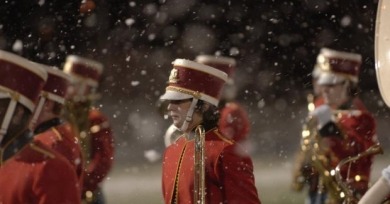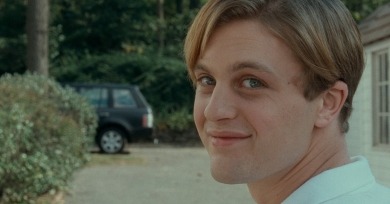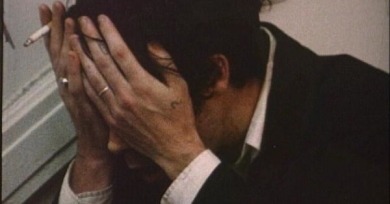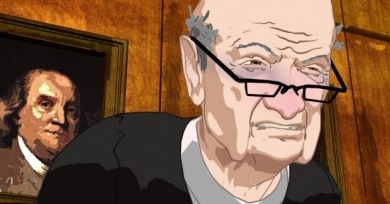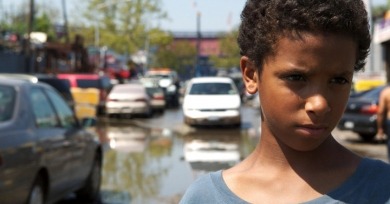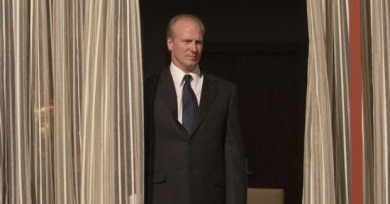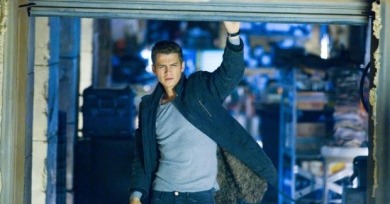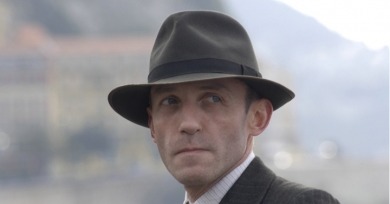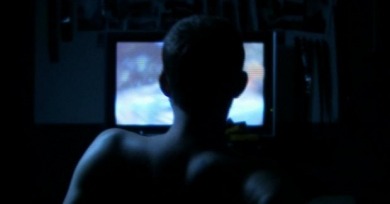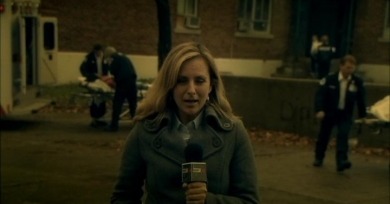Reviews
4 Months is considerably more incisive in this regard, partly because of Mungiu’s empathy with his characters and perhaps because of the relative touchiness of the debate into which he enters. But Li's film is nonetheless forceful and provocative, even if it fails to strike as deeply empathic a note.
David Gordon Green shows his condescending hand early in Snow Angels. A high school marching band plays slovenly and moves in lockstep to a familiar-sounding pop hit on a football field in the cool winter air of some Everysuburb, USA.
Snow Angels, the fourth feature by the preternaturally visually gifted, yet often narratively scattershot filmmaker David Gordon Green almost begs to be disliked.
The entire project suffers from the gall Haneke shows in not only remaking his own film for the “edification” of a wider audience, but in trusting his own original vision so fundamentally and without question that he has chosen not to append or alter it in any significant way.
Stephen Chow was at least at one point the biggest star in Asia; he may still be. As an actor, he’s affable, equally conversant with extreme physical comedy and action melodrama. As a filmmaker, his approach is endearingly idiosyncratic.
I didn’t laugh at any point in this comedy, so-called, but this isn’t as big a deal as one might think, because except for a few hard-brake punchline stops, the movie puts more of a premium on being likable than hilarious
As restless and flashy as the radicals it valorizes, Chicago 10 is an apocalyptic dispatch from the past refashioned as a slick flyer for the present.
As in his stunningly assured debut, Man Push Cart, Iranian-American director Ramin Bahrani uses Chop Shop not to sentimentalize the travails of one of NYC’s multitudinous, ignored underclass, but to discover, as Arthur Miller once said of The Bicycle Thief, “Everyman’s search for dignity.”
Vantage Point is pure fantasy, more concerned with churning out a satisfying resolution through narrative gimmickry than bearing out hows or whys. But as a mishmash of current political concerns, the film can’t help but seem exploitative.
David Rice, the protagonist at the center of Doug Liman’s Jumper, possesses the mysterious ability to teleport anywhere at whim. We quickly discover, however, that he exploits his limitless potential for decidedly narrow purposes.
The Counterfeiters is the bread and butter of the Academy, not to mention film festival audiences everywhere, and as such, seems to have been designed solely to win plaudits.
If Paddy Chayefsky and Newton Minow had ever bonded over too many cocktails—secretly spiked by Neil Postman—the result might have been The Signal, a grungy warning to anyone who would rather watch than engage.
Romero has often traded in rather glib social satire since the revelation of his 1978 Dawn of the Dead; whereas Tobe Hooper and John Carpenter’s genre work has mostly been greeted with retrospective praise and analysis, Romero’s never made any bones about his intent.


